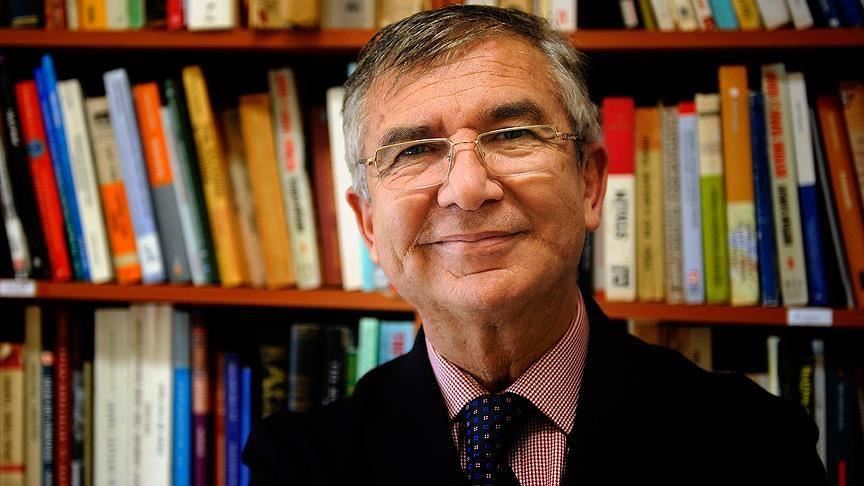US-China virus clash could escalate into hot war, expert warns
Coronavirus clash between Washington and Beijing could lead to military conflict between 2 countries, says Turkish expert

ISTANBUL
As world leaders accuse China of covering up the coronavirus outbreak at its outset before it grew into a global pandemic, a Turkish expert warned that the clash over the virus could escalate into a hot war.
“The epidemic could have been stopped earlier if China had given the information to stop the virus at its source,” Mesut Hakki Casin, a professor of law at Istanbul’s Yeditepe University, told Anadolu Agency.
According to Casin, China may one day face charges at an international court for the spread of the novel coronavirus and its belated reporting on the first cases in Wuhan.
Earlier this week, in an interview with German daily Bild, U.S. Secretary of State Mike Pompeo hinted that China is to blame for the damage wreaked by the virus worldwide.
“There will be a time when the people responsible will be held accountable. I am very confident that this will happen,” said Pompeo.
“At the moment, it’s absolutely necessary to focus on the current task in order to systematically restart the American, and then also the global, economy. There will be a time for assigning blame,” he added.
Pompeo was not the only world leader with China in his crosshairs.
U.S. President Donald Trump has insisted on describing COVID-19 as “Chinese virus,” despite critics calling the label racist.
French President Emmanuel Macron also questioned China’s handling of the outbreak, saying it was naive to suggest that it had dealt with the crisis well.
On Thursday, British Foreign Secretary Dominic Raab said: "We'll have to ask the hard questions about how it came about and how it couldn't have been stopped earlier."
"We can't have business as usual after this crisis," he added.
Reckoning between Washington, Beijing
Casin said he foresees a reckoning between Washington and Beijing, especially after Pompeo's remarks.
“As for the military aspect of the issue, the U.S. has the largest military power in the world” with upwards of $700 billion in annual defense spending, he said.
China has boosted its defense spending to $181 billion, second only to the U.S., Casin said, adding that in the next decade it is likely to pass the U.S., “which shows that China is a great challenger as a revisionist force in the face of the United States.”
On trade conflict between the U.S. and China, Casin said he thinks “this conflict will be reflected in a military dimension, contrary to the Cold War era,” where tensions failed to escalate into a direct military confrontation between the world’s super powers.
“China has launched its second aircraft carrier and challenged the U.S. with four cruisers in the Pacific,” he added.
“From a numerical perspective, China, which topped the U.S.’ 287 ships with its own 300, is very challenging for the U.S. in both the Pacific and the Atlantic,” he said.
Casin described this period, with an uncertain duration, as “epidemic diplomacy.”
“So the Third World War started between the great powers, and the 21st-century duel will be the last duel between Washington and Beijing,” he predicted.
“I believe the conflict here will be through South and North Koreas,” he added.
Worse than crash of 1929?
On Friday, the central Chinese city of Wuhan, where the novel coronavirus first emerged last year, revised upwards its death toll by 1,290 to 3,869 – an increase of 45%.
The revision in COVID-19 cases and deaths comes on the heels of the world’s second-biggest economy reporting its worst economic performance in decades, as the impact of the virus hits.
The pandemic has killed over 154,300 people and infected more than 2.25 million, while nearly 572,000 have recovered from the disease, according to figures compiled by the U.S.-based Johns Hopkins University.
Thousands of people across the world are in lockdown in their homes, Casin said, comparing the situation to a “global prison.”
“I think the global recession and mass unemployment, as well as decline in production, will lead to more serious consequences in the financial order than the economic crisis of 1929,” Casin said, which led to the Great Depression
The decline in oil and industrial means may lead to "mass starvation,” claimed Casin.
Highlighting that the Great Depression eventually led to World War II, Casin said he believes the pandemic may result in other clashes, especially between China and the U.S.
Citing a recent Wall Street Journal op-ed by former U.S. Secretary of State Henry Kissinger, Casin said Kissinger “gave three important messages” in the piece, entitled The Coronavirus Pandemic Will Forever Alter the World Order.
“He stated that the order of the world will change forever, political-economic turmoil will continue for generations, and that an effective and visionary American government that will overcome the division can bring solutions,” Casin explained.
In the op-ed Kissinger wrote: "We went on from the Battle of the Bulge into a world of growing prosperity and enhanced human dignity" referring to the last major German offensive of World War II.
"Now, we live an epochal period," the senior statesman added.
"The historic challenge for leaders is to manage the crisis while building the future. Failure could set the world on fire."
Anadolu Agency website contains only a portion of the news stories offered to subscribers in the AA News Broadcasting System (HAS), and in summarized form. Please contact us for subscription options.

